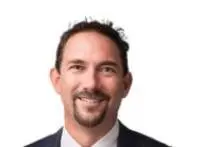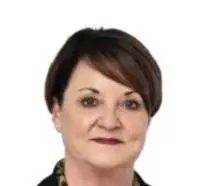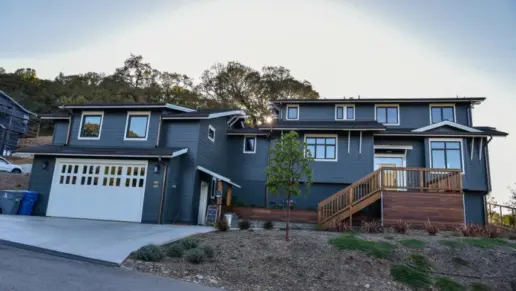About Pacific Clinics – Drop in Center
Pacific Clinics–Hope Drop In Center TAY, in Irwindale, California, provides mental and behavioral health care services for youth and families. They offer community based and outpatient programs and aftercare planning and support for adolescents and young adults ages 15 to 25.
Clients receive personalized services aligned with their unique needs. They may engage in classes on managing money, building healthy relationships, being creative and mindful, nutritional health, and more. They also participate in therapy and wellness programs to support those who may not need traditional drug rehab services. All services are free of charge.
Numerous supportive services are available to help teens and young adults make positive life choices, including access to a computer center, free hygiene products, help with resumes and interviews, employment support, transportation services, group outings, and more. The Center is also a safe zone for LGBTQIA+ youth.
The services at The Hope Drop In Center are free of charge, but they may refer participants for paid medical, mental health, or addiction recovery services. Many mental and behavioral healthcare providers accept commercial insurance, such as Cigna, Humana, BlueCross BlueShield, Bright Health, United Healthcare, Magellan Health, and more. Because every insurance plan is unique, be sure to contact the insurance company to verify coverage details and out of network benefits.
Latest Reviews
Rehab Score
Gallery
Other Forms of Payment
Financial aid can take many forms. Centers may have grants or scholarships available to clients who meet eligibility requirements. Programs that receive SAMHSA grants may have financial aid available for those who need treatment as well. Grants and scholarships can help you pai for treatment without having to repay.
Medicare is a federal program that provides health insurance for those 65 and older. It also serves people under 65 with chronic and disabling health challenges. To use Medicare for addiction treatment you need to find a program that accepts Medicare and is in network with your plan. Out of pocket costs and preauthorization requirements vary, so always check with your provider.
Addiction Treatments
Levels of Care
Treatments
Mental health rehabs focus on helping individuals recover from mental illnesses like bipolar disorder, clinical depression, anxiety disorders, schizophrenia, and more. Mental health professionals at these facilities are trained to understand and treat mental health issues, both in individual and group settings.
Programs

Clinical Services
Cognitive Behavioral Therapy (CBT) is a therapy modality that focuses on the relationship between one's thoughts, feelings, and behaviors. It is used to establish and allow for healthy responses to thoughts and feelings (instead of unhealthy responses, like using drugs or alcohol). CBT has been proven effective for recovering addicts of all kinds, and is used to strengthen a patient's own self-awareness and ability to self-regulate. CBT allows individuals to monitor their own emotional state, become more adept at communicating with others, and manage stress without needing to engage in substance abuse.
Whether a marriage or other committed relationship, an intimate partnership is one of the most important aspects of a person's life. Drug and alcohol addiction affects both members of a couple in deep and meaningful ways, as does rehab and recovery. Couples therapy and other couples-focused treatment programs are significant parts of exploring triggers of addiction, as well as learning how to build healthy patterns to support ongoing sobriety.
Research clearly demonstrates that recovery is far more successful and sustainable when loved ones like family members participate in rehab and substance abuse treatment. Genetic factors may be at play when it comes to drug and alcohol addiction, as well as mental health issues. Family dynamics often play a critical role in addiction triggers, and if properly educated, family members can be a strong source of support when it comes to rehabilitation.
Group therapy is any therapeutic work that happens in a group (not one-on-one). There are a number of different group therapy modalities, including support groups, experiential therapy, psycho-education, and more. Group therapy involves treatment as well as processing interaction between group members.
In individual therapy, a patient meets one-on-one with a trained psychologist or counselor. Therapy is a pivotal part of effective substance abuse treatment, as it often covers root causes of addiction, including challenges faced by the patient in their social, family, and work/school life.
Trauma therapy addresses traumatic incidents from a client's past that are likely affecting their present-day experience. Trauma is often one of the primary triggers and potential causes of addiction, and can stem from child sexual abuse, domestic violence, having a parent with a mental illness, losing one or both parents at a young age, teenage or adult sexual assault, or any number of other factors. The purpose of trauma therapy is to allow a patient to process trauma and move through and past it, with the help of trained and compassionate mental health professionals.
Staff

Chief Executive Officer, President

Chief Operations Officer

Chief Financial Officer

Chief Information Officer

Chief Human Resources Officer

Chief Development Officer

Chief Clinical Officer

Chief Communications Officer
Contact Information
13177 Ramona Boulevard
Baldwin Park, CA 91706


